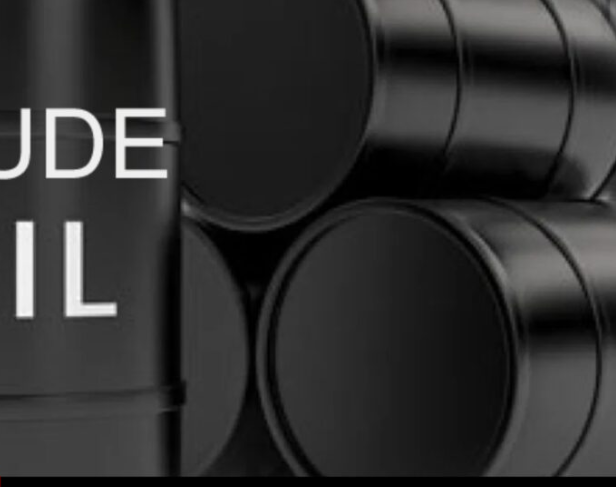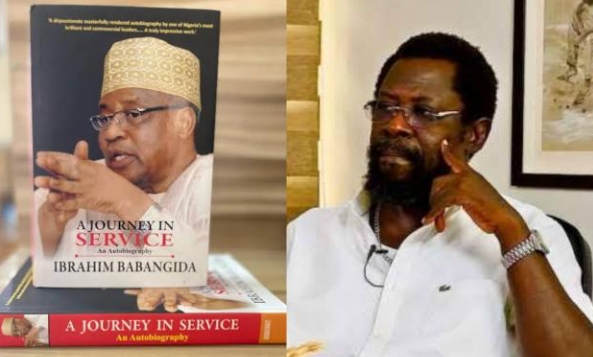News
Oil earnings rose by N91bn in June – FG

By Kayode Sanni-Arewa
The marginal rise in crude oil production in June 2024 increased Nigeria’s earnings from crude oil sales by about N91bn in the same month.
Latest oil production data obtained from the Nigerian Upstream Petroleum Regulatory Commission, an agency of the Federal Government, indicated that Nigeria’s oil production rose from 1,251,494 barrels per day in May to 1,276,159 barrels per day in June, representing an increase of 24,665 barrels daily.
This implies that the country pumped an additional 739,950 barrels of crude oil in 30 days in June.
The average price of Brent, the global benchmark for crude, was $82.25/barrel in June 2024, according to data from countryeconomy.com, an international analytical firm.
Also, the average exchange rate of the United States dollar in June, according to exchangerates.org, was N1,489.88/$.
Therefore by increasing oil production by 739,950 in 30 days, Nigeria’s earnings rose by $60.86m, an equivalent of N90.67bn in the review month.
Further analysis of NUPRC’s data showed how the country’s crude oil production fluctuated in the first half of 2024.
Nigeria produced 1,426,574 barrels of crude oil daily in January, but this dropped to 1,322,208 barrels per day in February and further declined to 1,230,518 barrels in March.
The downward trend was halted in April as the country produced 1,281,478 barrels of crude per day in that month. This was, however, not sustained as crude oil output from Nigeria dropped to 1,251,494 in May, before rising marginally to 1,276,159 in June.
The low crude oil production from Nigeria has remained a source of worry for operators in the oil sector.
Findings by our correspondent, as reported recently, showed that Nigeria failed to meet the crude oil production quotas approved by the Organisation of Petroleum Exporting Countries all through 2022 and 2023 and had been unable to meet those approved since January 2024, worsening the oil supply crisis to indigenous refiners.
OPEC is an intergovernmental organisation that enables the cooperation of leading oil-producing and oil-dependent countries to collectively influence the global oil market and maximise profit.
Oil earnings rise by N308.6bn
Refineries in Nigeria, including the $20bn Dangote Petroleum Refinery, as well as modular refiners, have been starved of adequate supply of crude required for the production of refined products such as Premium Motor Spirit, popularly called petrol, Automotive Gas Oil or diesel, and JetA1, otherwise called aviation fuel, among others.
They called on the Federal Government to work harder in partnership with International Oil Companies to ramp up Nigeria’s crude production, stressing that the lack of crude has remained a disincentive to investors, particularly those interested in modular refineries.
However, the Minister of State for Petroleum Resources (Oil), Heineken Lokpobiri, recently declared that the government had awarded a $21m contract to meter all 187 crude oil flow stations in Nigeria to properly account for what the country produces and exports.
He also said the government awarded another contract for software to enable the government to monitor the movement of Nigeria’s crude from the point of loading of every cargo in Nigeria up to the cargo’s destination.
Lokpobiri, who disclosed this at a press briefing in Abuja, stated that the initiatives would further give clarity on the volumes of crude produced in-country as well as the amount exported to other nations.
He said, “The Federal Executive Council meeting was held, presided over by Mr President, where we took bold steps to reorganise the oil and gas sector. One of the key approvals by the Federal Executive Council has to do with awarding a contract for the metering of our 187 flow stations across the Niger Delta region of Nigeria by the Nigerian Upstream Petroleum Regulatory Commission.
“NUPRC is the apex regulatory agency or commission for the Nigerian oil and gas upstream sector. As part of our steps to ensure that we have proper accountability, the Federal Executive Council approved the metering of all our production. We have 187 flow stations in the country, and there was a contract awarded for us to meter all the flow stations so that we’ll be able to properly account for what we produce and what we export.
“It’s a major development that has never happened in this country. This project is meant to be completed within six months, within 180 days. And Nigerians must know some of the key steps that this government is taking to ensure that we maximise opportunities that other countries are getting by the availability of oil and gas in Nigeria
News
Saudi Arabia donates 100 tonnes of dates to Nigeria as fasting approaches

By Kayode Sanni-Arewa
The Embassy of the Kingdom of Saudi Arabia in Abuja has held an official ceremony to distribute 100 tonnes (100,000kg) of dates to Nigeria as part of its annual humanitarian relief efforts.
The initiative, facilitated by the King Salman Humanitarian Aid and Relief Centre (KSrelief), aims to support vulnerable families across the country and strengthen the deep-rooted ties between the two nations.
During the ceremony, the Ambassador of the Custodian of the Two Holy Mosques to Nigeria, Faisal bin Ibrahim, conveyed the Kingdom’s dedication to humanitarian causes.
He expressed his profound gratitude to King Salman bin Abdulaziz and Crown Prince Mohammed bin Salman for their unwavering support in providing aid to Muslims and underserved communities worldwide.
He emphasised that Saudi Arabia remains steadfast in its commitment to fostering Islamic solidarity and providing relief to those in need.
Mr Al-Ghamdi explained that this year’s distribution includes 50 tonnes of dates for Abuja and another 50 tonnes for Kano, continuing Saudi Arabia’s tradition of assisting Nigeria through humanitarian donations.
He noted that the initiative represents the Kingdom’s broader mission to uplift Muslim communities, alleviate suffering, and promote unity, particularly during significant religious periods such as Ramadan.
The embassy, in collaboration with local authorities and humanitarian organisations, will ensure the proper distribution of the dates so that they reach the most vulnerable families in various regions of Nigeria
Saudi Arabia has been a longstanding partner in providing humanitarian aid to nations across the globe, including Nigeria. The Kingdom’s continued efforts in supporting food security and welfare initiatives exemplify its role as a global leader in charitable and humanitarian endeavours.
Through Vision 2030, Saudi Arabia seeks to expand its contributions to international humanitarian causes, reinforcing its dedication to fostering peace, stability, and prosperity worldwide. The ongoing provision of aid to Nigeria is a testament to these commitments and highlights the decades-long partnership between the two brotherly nations.
News
Babangida’s Book is filled with distorted facts, collection of lies, says Dele Farotimi

By Kayode Sanni-Arewa
Dele Farotimi, a human rights lawyer, has launched a heavy attack on former dictator Gen. Ibrahim Babangida (retd.), describing his reign as “ruinous”.
Farotimi, who lived through Babangida’s rule, recounted his experiences as a participant in the fight against the former leader’s “evil actions and inactions
Farotimi’s comments come after Babangida’s recent admission that Chief M.K.O. Abiola won the 1993 presidential election, which Babangida annulled.
The human rights lawyer expressed his disappointment, but not surprise, at the “mixed bag of lies, half-truths, urban legends, and obfuscations” in Babangida’s recent statements.
Farotimi’s criticism is not isolated, as many Nigerians have questioned Babangida’s legacy and the lack of consequences for his actions. The annulment of the 1993 election led to widespread protests and a prolonged struggle for democracy in Nigeria.
In a statement, Farotimi concluded, “No hagiographic allocutus can redeem the Evil Genius of Minna”.
The statement was shared on X while he was reacting to a comment made by Adnan Abdullahi Adam, which stated that “it’s better to read every side of exposition before forming your own judgement”.
With the cover picture of the IBB’s memoir “A Journey In Service” @realadnantweet wrote:
“I think IBB’s memoir: “A Journey in Service” exposes a fresh perspective on everything.
“It’s better to read every side of exposition before forming your own judgement.
“Everyone should try reading the book as jury to the plea of the accused.”
Responding Farotimi wrote: “I lived through his ruinous reign. I wasn’t a passive victim of his evil actions and inactions, I was a participant in the fight to be freed of him.
“I am painfully aware of the extent of his evil capabilities, and I have not been disappointed by the mixed bag of lies, half truths, urban legends, and obfuscations contained in the excerpts already in the public domain. No hagiographic allocutus can redeem the Evil Genius of Minna.”
On Thursday, February 20, 2025, former Nigerian military ruler General Ibrahim Badamasi Babangida (IBB) released his long-anticipated autobiography, “A Journey in Service.”
The memoir has ignited a firestorm of controversy, with critics accusing Babangida of distorting historical events and maligning deceased individuals who cannot defend themselves.
This development has reopened debates about his tenure and its lasting impact on Nigeria’s political and economic landscape.
Babangida’s tenure from 1985 to 1993 was marked by the implementation of the Structural Adjustment Programme (SAP), among others. In “A Journey in Service,” he provides an insider’s perspective on the adoption of SAP, aiming to offer context for the controversial policy that aimed to liberalize Nigeria’s economy.
While intended to address economic challenges, SAP led to widespread protests and debates due to its harsh austerity measures and the social hardships it imposed.
Critics, however, contend that Babangida’s memoir serves as a self-exoneration tool, selectively presenting events to absolve himself of blame.
Human rights lawyer and former Chairman of the Nigerian Human Rights Commission, Prof. Chidi Odinkalu, described the book as a “pack of lies,” accusing Babangida of making allegations against deceased individuals who cannot contest his claims.
Odinkalu further criticized Babangida for portraying himself as a victim of circumstances orchestrated by those who are no longer alive to defend themselves.
The memoir has also rekindled discussions about Babangida’s annulment of the June 12, 1993, presidential election, widely regarded as one of Nigeria’s freest and fairest elections. In the book, Babangida attempts to justify the annulment, a move that plunged the nation into political turmoil and prolonged military rule. Many Nigerians view this action as a significant setback to the country’s democratic progress.
News
Saudi Arabia plans to invest $600bn in new US trade over 4 years

By Kayode Sanni-Arewa
Saudi Arabian Crown Prince Mohammed bin Salman told President Donald Trump that the kingdom wants to put $600 billion into expanded investment and trade with the United States over the next four years, the Saudi State news agency said early on Thursday.
In a phone call between the two leaders, the crown prince said the Trump administration’s expected reforms could create “unprecedented economic prosperity”, the state news agency reported.
The report said Saudi Arabia wants its investments to capitalize on these conditions. It did not detail the source of the $600 billion, whether it would be public or private spending nor how the money would be deployed.
The investment “could increase further if additional opportunities arise”, the agency quoted Bin Salman as telling Trump.
Trump fostered close ties with Gulf states including Saudi Arabia during his first term. The country invested $2 billion in a firm formed by Jared Kushner, Trump’s son-in-law and former aide, after Trump left office.
Trump said following his inauguration on Monday that he would consider making Saudi Arabia his first destination for a foreign visit if Riyadh agreed to buy $500 billion worth of American products, similar to what he did in his first term.
“I did it with Saudi Arabia last time because they agreed to buy $450 billion worth of our product. I said I’ll do it but you have to buy American product, and they agreed to do that,” Trump said, referring to his 2017 visit to the Gulf kingdom.
The Reuters Daily Briefing newsletter provides all the news you need to start your day. Sign up here.
Reporting by Hatem Maher; Editing by Leslie Adler and Cynthia Osterman
-

 News22 hours ago
News22 hours agoJust in : Senator Gumau is dead
-

 News22 hours ago
News22 hours agoPolice seal OSSIEC office, officials nabbed, says chairman
-

 News23 hours ago
News23 hours ago10th NASS Committed to Constitutional Reforms – Kalu
-

 Metro15 hours ago
Metro15 hours agoInsecurity! Gunmen invade church, slash pastor’s 2 fingers
-

 News23 hours ago
News23 hours agoRep Salam Congratulates Governor Adeleke On Successful Conduct Of LG Elections
-

 Metro15 hours ago
Metro15 hours agoFire engulfs MTN office in Oyo
-

 Foreign15 hours ago
Foreign15 hours agoPentagon set to sack 5400 staff as attack hits Trump’s downsizing plan
-

 News22 hours ago
News22 hours agoI have never insulted President Tinubu in my entire life”-Gov Adeleke







